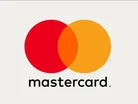Mastercard: Powering the Digital Economy With Smarter Tech

Technology is becoming smarter and more intuitive than ever before. In the world of payments, new innovations and greater ease of access to financial technology are supporting many SMEs, supply chains and other services in joining the digital economy.
In his annual letter, Mastercard CEO Michael Miebach outlines how the company has helped bring more companies and people into the digital economy in the past year, and its plans to continue to do so in the future.
Mastercard: Steering momentum to a universal digital economy
In collaboration with its many industry partners, Mastercard has delivered many of the payments technologies that may digitisation possible today, from contactless cards to tokenisation and cybersecurity defences.
“People use our global network hundreds of millions of times a day to safely and easily transfer money, make payments and get paid,” says Michael.
“We are pursuing a future that accelerates these changes to deliver more value, stronger relationships and greater efficiency.
“Banking and retail experiences that can be more personalised. Commercial services that simplify processes for businesses of all sizes. AI-powered cybersecurity that allows us all to stay one step ahead of scammers.
“This is how we’re powering economies and empowering people.”
- Create value – for our partners, teams and investors by thinking big and bold, and innovating
- Grow together – by helping each other be great
- Move fast – prioritising what matters and pivoting when needed
2023: Powering economies and reaching double-digit growth
2023 marked another successful year on Mastercard’s mission to power the digital economy, achieving double-digit growth in net revenue, gross domestic volume and switched transactions year-on-year.
This was fuelled even further in November last year when Mastercard received approval to launch domestic payments processing services in China, something Michael hopes will take Mastercard’s growth rate to new heights.
Indeed, there are three core pillars the payments processing giant abides by – or ‘growth algorithm’ – to achieve the sustained success it does.
The first is expanding in payments, with Mastercard bidding to offer the most comprehensive suite of payments options, so its services are favoured across all areas.
“We’re winning new business in consumer payments – proof that our efforts to expand digitisation are working,” notes Michael.
“Last year, we significantly expanded our partnership with UniCredit, with the group deciding to use Mastercard across 12 markets and 13 of its banks, [and] in the US, we became the exclusive payments network for Citizens Bank.”
Second is the extension of Mastercard’s services, launching new products and services that leverage the latest technologies to help it stay at the forefront of innovation.
Michael continues: “Our focus in services is all about creating efficiency and value. For example, Mastercard has been using predictive AI for years, especially in our cybersecurity solutions and fraud detection work to protect the billions of transactions that run through our network.
“To keep up this work, earlier this year we unveiled Decision Intelligence Pro, which uses generative AI to predict the authenticity of transactions, boosting banks' fraud detection work.
“There is still more predictive AI can deliver even as we explore the potential of generative AI. We are working to integrate AI into even more of what we do in a principled manner to make every digital experience even smarter, even safer and even more personalised.”
Lastly, Mastercard is continuing its efforts to embrace new networks, as it looks to grow in adjacent spaces and leverage its expertise in managing global payments networks to create value for customers.
“Our work to develop new ways to integrate digital identification and open banking to integrate both technologies into our core payments and services is an example of this effort,” continues Michael.
“For instance, digital ID has quickly become a vital way for people in many countries to access government services, vote and shop online.
“Our open banking assets provide connectivity to more than 95% of deposit accounts in the US and approximately 3,000 banks across Europe.
“Those connections allow consumers to seamlessly share data between trusted parties and improve the bill pay experience for customers of Verizon and Worldpay.”
As it looks ahead to 2024, Mastercard aims to continue its efforts to build a smarter, safer, more inclusive digital future, delivering the payments services its customers come to expect on a daily basis.
“That is the expectation you – our customers, partners, account holders and shareholders – have for us,” concludes Michael. “It is a responsibility we are focused on every day.”
**************
Make sure you check out the latest edition of FinTech Magazine and also sign up to our global conference series – FinTech LIVE 2024.
**************
FinTech Magazine is a BizClik brand.



